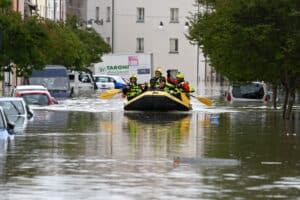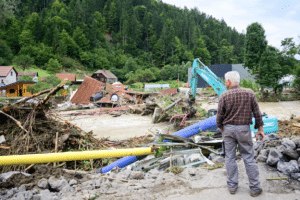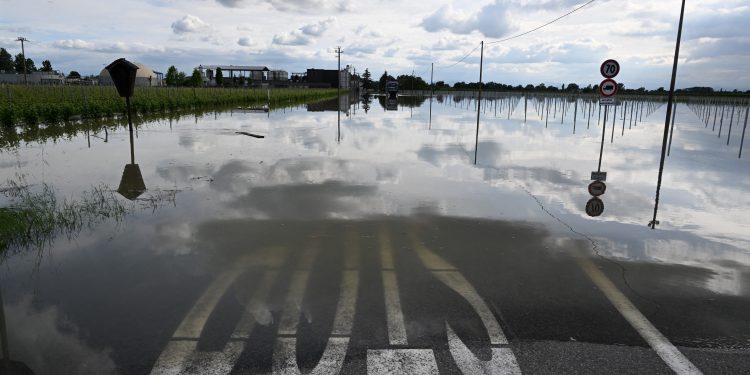Brussels – Once upon a time there was the Solidarity Fund, which for 20 years enabled EU member states to respond to the consequences of natural disasters with short- and long-term recovery. But this success story may have come to an end if the EU institutions fail to find sustainable solutions to make the Union’s off-budget facility more effective in the face of the ever-growing challenges of climate change. The
EU Solidarity Fund’s resources were depleted nearly halfway through the year in
2023 (leaving several months of potential need uncovered) and demonstrated for the first time that half a billion euros for 365 days will no longer be enough in the present and future of extreme weather events.

The Solidarity Fund is an off-budget instrument that allows up to €500 million to be mobilized annually—in addition to unspent funds from the previous year—to cover part of the costs of reconstruction. EU member states affected by natural disasters can apply to the commission for its activation within 12 weeks of the first damage being detected, attaching to the application an estimate of the damage. This arrangement allows for emergency interventions such as the immediate restoration of essential infrastructure functionality (energy, telecommunications, transportation, health, education), the provision of temporary housing for the population, clean-up operations, and the protection of cultural heritage, while private damage is not eligible. The granting of funds is subject to the outcome of the Community Executive’s assessment of the application.
The 2023 funds were almost completely taken by three natural disasters that occurred between late 2022 and early this year. According to the commission’s proposal approved by the co-legislators, €33.9 million were earmarked to deal with the consequences of the drought in Romania through August 2022, 20.9 million to support Italy after the floods in the Marche region in September last year, and 400 million to help Turkey recover from the February earthquakes; a total of €454.8 million disbursed even before the three major crises of 2023 occurred, with only €45 million left in the Solidarity Fund coffers (plus the remaining unused in 2022): the floods in Emilia-Romagna in early May, the floods in Slovenia in early August—the worst natural disaster in its history—and the ones in Greece a month later in the Thessaly region.
All three member countries have applied to access the Solidarity Fund, but only Rome and Ljubljana have received an advance already this year to support reconstruction efforts. In November came Brussels’ decision to allocate 94.7 million for Emilia-Romagna and 100 million for Slovenia, while in a recent response to a parliamentary question, the Commissioner for Cohesion and Reform Elisa Ferreira disclosed that “the Commission is assessing the request” from Athens in relation to the floods in Thessaly that arrived last November 20. In any case—anticipations aside—all three requests will fall within the 2024 Solidarity Fund budget, although the total budget to be allocated will depend on the availability of funds and the number of crises that the Union and its member countries will face.

That is why increasingly urgent demands have been raised from the European Parliament to the EU Commission to address the problem whereby the €500 million reserve is being depleted every year and is no longer sufficient to deal with increasingly extreme natural phenomena. The proposal by MEPs is to double the amount to 1 billion per year by increasing the ceilings for individual allocations. Instead, the Community Executive has proposed, as part of the proposal to revise the EU multiannual budget 2021-2027, to increase the appropriations for the Solidarity and Emergency Aid Reserve (Sear) by 2.5 billion euros, to be distributed for the last four remaining years of the programming period between its two instruments, the Solidarity Fund and the Emergency and Aid Reserve.
Since its activation in 2002 and until 2022, the Solidarity Fund has provided over 8.2 billion euros in total for 127 disasters—107 of which are related to extreme weather phenomena—in 25 member states, plus the United Kingdom and three acceding states (Albania, Montenegro, and Serbia). Of these funds, nearly one-third (just over 3 billion) went to Italy, just under twice as much as the second largest recipient Germany (1.6 billion). Croatia is also above the billion mark, while France (403 million), the United Kingdom (222 million), and Austria (213 million) are more distant. The smallest beneficiaries at the moment are Malta (961,000 euros), Albania (900,000), and Montenegro (199,000), while Finland and Denmark are the only EU member states that in 20 years have never applied for nor received any allocation from the EU Solidarity Fund.
English version by the Translation Service of Withub





